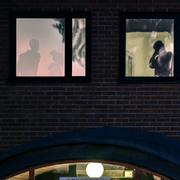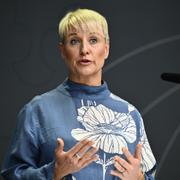bakgrund
Nicolae Ceaușescu
Wikipedia (en)
Nicolae Ceaușescu GColSE (Romanian: [nikoˈla.e t͡ʃe̯awˈʃesku]; 26 January 1918 – 25 December 1989) was a Romanian Communist politician. He was General Secretary of the Romanian Communist Party from 1965 to 1989, and as such was the country's second and last Communist leader. He was also the country's head of state from 1967 to 1989.
A member of the Romanian Communist youth movement, Ceaușescu rose up through the ranks of Gheorghe Gheorghiu-Dej's Socialist government and, upon the death of Gheorghiu-Dej in 1965, he succeeded to the leadership of Romania’s Communist Party as General Secretary.
After a brief period of relatively moderate rule, Ceaușescu's regime became increasingly brutal and repressive. By some accounts, his rule was the most rigidly Stalinist in the Soviet bloc. He maintained controls over speech and the media that were very strict even by Soviet-bloc standards, and internal dissent was not tolerated. His secret police, the Securitate, was one of the most ubiquitous and brutal secret police forces in the world. In 1982, with the goal of paying off Romania's large foreign debt, Ceaușescu ordered the export of much of the country’s agricultural and industrial production. The resulting extreme shortages of food, fuel, energy, medicines, and other basic necessities drastically lowered living standards and intensified unrest. Ceaușescu's regime was also marked by an extensive and ubiquitous cult of personality, nationalism, a continuing deterioration in foreign relations even with the Soviet Union, and nepotism.
Ceaușescu’s regime collapsed after he ordered his security forces to fire on anti-government demonstrators in the city of Timișoara on 17 December 1989. The demonstrations spread to Bucharest and became known as the Romanian Revolution, which was the only violent removal of a Communist government in the course of the revolutions of 1989. Ceaușescu and his wife, Elena, fled the capital in a helicopter but were captured by the armed forces. On 25 December the couple were hastily tried and convicted by a special military tribunal on charges of genocide and sabotage of the Romanian economy in an approximately one-hour long court session. Ceaușescu and his wife were then shot by a firing squad.




